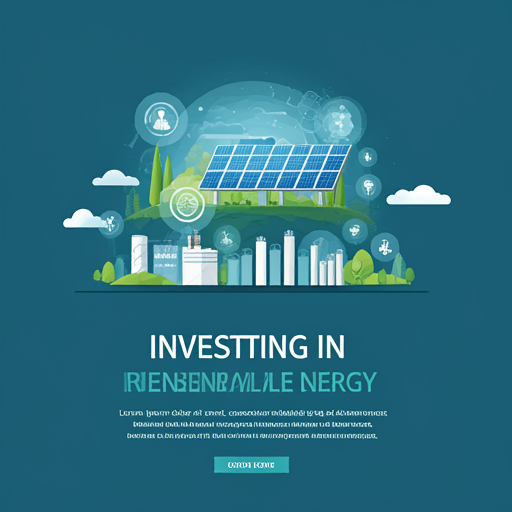Introduction to Renewable Energy and Cryptocurrency
Overview of Renewable Energy Sources
Renewable energy sources include solar, wind , hydro, geothermal, and biomass. Each source has unique characteristics and applications. For instance, solar energy harnesses sunlight through photovoltaic cells. Wind energy captures kinetic energy from wind using turbines. These methods are increasingly relevant in today’s energy landscape. They offer sustainable alternatives to fossil fuels.
In addition, the integration of cryptocurrency into renewable energy projects is gaining traction. Blockchain technology can enhance transparency in energy transactions. This innovation may streamline funding for renewable initiatives. It is an exciting development. The potential for growth is significant.
The Role of Cryptocurrency in Energy Markets
Cryptocurrency plays a transformative role in energy markets. It facilitates peer-to-peer energy trading, allowing consumers to buy and sell energy directly. This model enhances market efficiency and reduces costs. Many are exploring its potential. Additionally, blockchain technology ensures unafraid and transparent transactipns. This innovation builds trust among participants. The implications for energy distribution are profound. It could reshape traditional energy systems.
Current Trends in Renewable Energy Investments
Growth of Renewable Energy Projects
The growth of renewable energy projects is accelerating. Investment in solar and wind technologies is increasing significantly. This trend reflects a shift towards sustainable practices. Many investors recognize the long-term benefits. Additionally, government incentives are driving this growth. These policies support clean energy initiatives. The financial landscape is evolving rapidly. It presents new opportunities for stakeholders.
Impact of Cryptocurrency on Investment Strategies
Cryptocurrency is reshaping investment strategies in renewable energy. It introduces innovative financing models, such as tokenization of assets. This approach enhances liquidity and accessibility for investors. Many are adapting to these changes. Furthermore, blockchain technology improves transparency in transactions. This fosters trust among stakeholders. Investors can now diversify their portfolios more effectively. It is a significant advantage.
Benefits of Investing in Renewable Energy
Environmental Impact and Sustainability
Investing in renewable energy significantly reduces carbon emissions. This transition mitigates climate change impacts. Cleaner air and water result from decreased fossil fuel use. Many communities benefit from improved health outcomes. Additionally, renewable energy projects promote biodiversity conservation. They often utilize land more sustainably. This approach supports long-term ecological balance. It is essential for future generations.
Financial Returns and Incentives
Investing in renewable energy offers substantial financial returns. Government incentives enhance profitability through tax credits and grants. These benefits can significantly reduce initial capital costs. Many investors find this appealing. Additionally, renewable energy projects often yield stable cash flows. This stability attracts long-term investors. The market for green energy is expanding rapidly. It presents new opportunities for growth.
Challenges Facing Renewable Energy Investments
Regulatory and Policy Barriers
Regulatory and policy barriers significantly hinder renewable energy investments. Complex permitting processes can delay project timelines. This uncertainty discourages potential investors. Additionally, inconsistent regulations across jurisdictions create challenges. Investors often face varying compliance requirements. These discrepancies complicate project planning. Furthermore, subsidies for fossil fuels can distort market dynamics. This creates an uneven playing field.
Market Volatility and Risk Factors
Here are 10 trending article titles for a financial website based on the latest news and analysis: No input data
Cryptocurrency as a Funding Mechanism
Initial Coin Offerings (ICOs) for Energy Projects
Initial Coin Offerings (ICOs) provide innovative funding for energy projects. They allow companies to raise capital through token sales. This method enhances liquidity and investor participation. Many projects benefit from this approach. Additionally, ICOs can democratize investment opportunities. They attract a broader range of investors. This trend is gaining momentum in the energy sector. It presents unique advantages for project financing.
Decentralized Finance (DeFi) Solutions
Decentralized Finance (DeFi) solutions offer innovative funding mechanisms for energy projects. They enable peer-to-peer lending and borrowing without intermediaries. This approach reduces transaction costs and increases efficiency. Many investors find this model appealing. Additionally, DeFi platforms provide greater access to capital. This democratizes investment opportunities in the energy sector. It could reshape traditional financing methods.
Case Studies of Successful Investments
Notable Projects Utilizing Cryptocurrency
Several notable projects successfully utilize cryptocurrency for funding. For example, Power Ledger enables peer-to-peer energy trading. This platform enhances energy efficiency and reduces costs. Another project, WePower, tokenizes energy contracts. This approach streamlines financing for renewable projects. These innovations demonstrate the potential of blockchain technology. They attract diverse investors and stakeholders. The results are promising and impactful.
Lessons Learned from Failed Ventures
Several failed ventures in cryptocurrency highlight important lessons. For instance, projects lacking clear regulatory compliance often struggle. This oversight can lead to significant financial losses. Additionally, inadequate market research can result in poor investment decisions. Many investors overlook this critical step. Furthermore, overpromising on technology capabilities can damage credibility. Trust is essential in this sector. These experiences emphasize the need for thorough planning.
The Future of Renewable Energy and Cryptocurrency
Emerging Technologies and Innovations
Emerging technologies are transforming the renewable energy landscape. Innovations such as smart grids enhance energy distribution efficiency. These systems optimize resource allocation and reduce waste. Additionally, blockchain technology improves transparency in energy transactions. This fosters trust among participants. Furthermore, advancements in energy storage solutions are crucial. They enable better integration of renewable sources. The future holds significant potential for these developments. It is an exciting time for investors.
Predictions for Market Growth and Integration
Predictions indicate significant market growth for renewable energy. Analysts expect increased investment in sustainable technologies. This trend will likely attract diverse investors. Additionally, integration of cryptocurrency into energy markets is anticipated. It may enhance transaction efficiency and transparency. Many stakeholders are optimistic about these developments. The potential for innovation is substantial. It could reshape the energy landscape significantly.

Leave a Reply